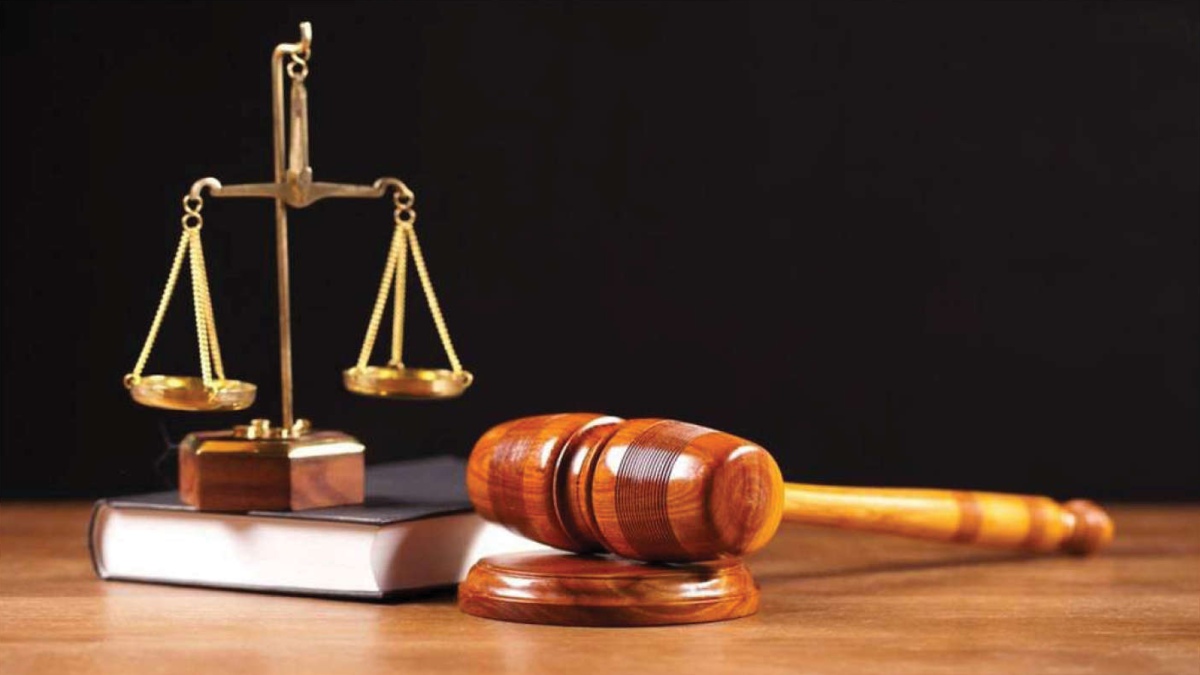INTRODUCTION
When Haryana held its first election in 1967 after the state carved out from Punjab, an independent candidate named Gayalal won the assembly elections. Later he joined the Congress party; in the evening, he joined the United front, and within 9 hrs he joined the Congress again, which ultimately means M.L.A. Gayalal switched his party thrice within 9hrs. This incident gave rise to “Aaya Ram Gaya Ram” politics in our country, and the defection got the new term, “Aaya Ram, Gaya Ram.” Unfortunately, this didn’t end here. Within 15 days, Gayalal again joined the United front. In another notorious event in 1979, Haryana also came into the limelight when Bhajan Lal became CM of the state. The next, year Indira Gandhi came into power in the central government. He joined the Congress party with forty other M.L.A.s. It is worth mentioning here that more than 50 state governments have fallen because of these defections since Independence’s enactment.
These acts of defections had to be curbed to maintain the dignity of the constitutional machinery and assemblies; then, the prime minister of the country, Late Rajeev Gandhi, enacted the 52nd amendment of the Constitution, and the 10th Schedule was added, which defined the word defection and known as Anti-Defection law. Various provisions have been provided by the law, which discusses grounds under which any member of the state legislature or Parliament can be disqualified. In most common forms, defection means jumping from one political party to the other after getting elected.
HISTORICAL EVOLUTION OF LAW
After enacting the Constitution in the year 1950, we had the first general elections in our country in which Congress secured a whopping victory. Still, with time, the political scenario took a turn, and we came across coalition governments in various states. Floor crossing started which led to a vicious cycle of defections and floor crossing. In the late 1960s, most defectors were from Congress. In 1977, the Bhartiya Lok Dal ran 94 turncoat candidates, including 21 from Congress. Many of them migrated back to the Congress once it became clear that Indira Gandhi was set to win the 1980 elections. This period is considered a weak point of Congress in Indian Politics.
With all those defections in this phase, the most dramatic case of the defection in that era was that of Mr. Gaya Lal, who contested state assembly elections as an independent candidate. After results, he switched the parties between Congress and United Front thrice in a day. Ultimately, the president was forced to implement President rule in the state, giving rise to Aaya Ram, Gaya Ram politics in our country.
THE INTERNATIONAL SCENARIO ON ANTI-DEFECTION LAW
Anti-defection law isn’t applicable in India only. It’s rife in various other countries like the People’s Republic of Bangladesh, Kenya, an African country, etc. Article 70th of the People’s Republic of Bangladesh Constitution says a member shall vacate his seat if he resigns from or votes against the directions given by his party. The Speaker refers the dispute to the committee. Section forty of the Kenyan Constitution states that a member United Nations agency that resigns from his party must vacate his seat. The choice is by the Speaker, and therefore the member might consider attractiveness to the state supreme court.
Article forty-six of the Singapore Constitution says a member should vacate his seat if he resigns or is expelled from his party. Article forty-eight states that Parliament decides on any question about the Disqualification of a member. Section forty-seven of the South African Constitution provides that a member loses membership of the Parliament if he ceases to be a member of the party-appointed him.
WHAT IS THE ROLE OF PRESIDING OFFICERS IN THE CONTEXT OF ANTI-DEFECTION LAW?
The tenth Schedule provides presiding officers of legislatures with the power to make your mind up cases of defection. However, it’s been noted that because the Speaker relies upon continuous support of the bulk within the House, he might not satisfy the need of associate freelance adjudicating authority regarding the decision of defection.
In the past, adjudication of the Speakers with relation to disqualifications are challenged before courts for being biased and partial. Many knowledgeable committees and commissions, together with the Dinesh Goswami Committee (1998), Commission to Review the Constitution (2002) so the| and also the} Law Commission (2015) have therefore counseled that defection cases should be set by the President or Governor for the center and states severally, World Health Organization shall act on the recommendation of the committee. This can be an equivalent observe that’s followed for deciding queries associated with the Disqualification of legislators on alternative grounds, like holding an associate workplace of profit or being of unsound mind, beneath the Constitution. However, note that the Supreme Court has upheld the availability granting the leader the ability to require these selections on the bottom that,
“The Speakers/Chairmen hold a polar position within the theme of republic and square measure guardians of the rights and privileges of the House. They’re expected to require way reaching selections within the functioning of the republic. Vestiture of power to adjudicate queries beneath the Tenth Schedule in such constitutional functionaries shouldn’t be thought of objectionable.”
JUDICIAL VIEW ON DISQUALIFICATION BY THE SPEAKER FOR DEFECTION
Dr. Koya defied a celebration whip requiring him to be a gift within the House and vote against the Motion of Confidence for the government. He claimed he was too unwell to be a gift within the House. The Speaker over that Dr. Koya abstained from choice by remaining absent, and therefore the proof of the ‘illnesses isn’t decent to conclude that he was thus unwell that he couldn’t be a gift within the House.
Shri Prasad defied a celebration whip requiring him to be a gift within the House. In his defense, he denied that any whip was issued or served. The Speaker commands that visible of the fact that there’s proof to indicate that the whip had been delivered to Shri Prasad’s House, and had been punctually received, it can’t be aforesaid that Shri Prasad had no information of the whip.
The opposition alleged that Shri Bishnoi usually dissented from and criticized the Congress government in public and demanded the govt’s dismissal. In Haryana. The Speaker command that an individual obtaining elective as a candidate of a party also gets elective thanks to the party’s programs. If the person leaves the party, he ought to return before the citizens.
It was alleged that Shri Akhlaque joined the Samajwadi Party in an exceedingly public meeting. It was alleged that at this meeting, Shri Akhlaque had aforesaid that inside, he had invariably been a member of the S.P. The Speaker reasoned that there’s no reason why news clippings and stories within the media would be lying. The Speaker, so command Shri Akhlaque disqualified for having voluntarily given up membership of the B.S.P. The foremost recent case about anti-defection is from the Mysore State assembly wherever B.J.P. is that the ruling party and fourteen members of B.J.P. and five freelance members sent a letter of discontent against the Chief Minister.
A criticism was created against them, and Speaker disqualified them from their membership. The case is unfinished within S.C.
CHALLENGES TO ANTI-DEFECTION LAW
The Constitution (32nd Amendment) Bill 1973 and thus the Constitution (48th Amendment) Bill 1978 had provisions for decision-making by the president and governors of states in connection queries on Disqualification on the ground of defection.
The Constitution (52nd Amendment) Bill 1985 suddenly introduced the provision that queries of Disqualification on the ground of defection shall be determined by chairmen and speakers of the legislative bodies. The intention was to possess speedier assessment processes at a lower place in the Tenth Schedule. This provision was a problem matter of excellent discussion in Parliament once the bill was being passed.
The 91st amendment to the Constitution was enacted in 2003 to tighten the Tenth Schedule’s anti-defection provisions, passed earlier in 1985. This change obligates all those political modification sides — whether or not on a private basis or in groups — to resign their legislative membership. They presently have to be compelled to search for re-election if they defect and cannot continue work by engineering a “split” of the simple fraction of members, or among the pretense of a “continuing split of a party.” The change jointly bars legislators from holding, post-defection, any work of profit. This amendment has therefore created defections concerning insufferable and may be an important breakthrough in cleansing politics. The irony of matters today is that the events have invalidated the vital intent of the dream of Rajiv Gandhi Their area unit instances whereby once the declaration of election results, winning candidates have resigned from their membership of the House additionally due to the party from that they got elective. Instantly, they have joined the party that has formed the govt and have yet again opposed that party, which looks to be a fraud and goes against the spirit of democracy and 52nd constitutional modification. The ingenious human brain unreal innovative ideas to induce resignations and, in effect, created the anti-defection law as a cover to hide their atrocious crime.
This law excluded the jurisdiction of the judiciary from reviewing the choices of Speakers. This half was controlled to be unconstitutional by the Supreme Court, whereas it upheld the remainder of the law. The Supreme Court was unanimous in holding that paragraph seven of the tenth Schedule utterly excluded all courts’ jurisdiction together with the Supreme Court beneath Article 136 and High Courts beneath Articles 226 and 227 in respect of any matter connected with the Disqualification of the member of a House.
The Constitution doesn’t enable the general assembly to limit the powers of the judiciary. ‘The Speakers/Chairmen, whereas effort powers and discharging functions beneath the Tenth Schedule act as assembly adjudicating rights and obligations beneath the Tenth Schedule and their choices therein capability area unit amenable to judicial review,’ Supreme Court same. Consequently, the Supreme Court reviewed and smitten down the order gone by the Speaker of province Assembly to disable two members in violation of the constitutional mandate in paragraph three of the Tenth Schedule to the Constitution.
Suppose we tend to run into the impact of this law. In that case, it curbs the legislators’ freedom of opposing the incorrect policies, dangerous leaders, and anti-people bills projected by the ‘High Command’ in a whimsical and monarchical manner. This law has given extra dictatorial power to the organization to stay the flock along for a complete term.
“Section 2(b) of the Tenth Schedule puts the Member of Parliament into the straight jacket of obedience to the despotic dictates of the party whips that undermines the democratic spirit. It conjointly violates the principle of representative democracy by empowering the party and undermining nonappointive representatives and constituents’ connection.
The anti-defection law makes a mockery of the republic by marginalizing debates because the legislators aren’t allowed to dissent while not disqualified by the House. Disruptions, instead of substantive dialogue, become the sole style of opposition attainable. The parliamentary discussion has thereby become, for the most part, redundant”.
The Tenth Schedule has set down bound norms for keeping the flock of legislators of every party along. Therefore, the ‘whips’ within the hands of legislative party leaders, reducing the Hon’ble leaders and people’s representatives into shepherds and sheep. Because of the political parties’ unreal mechanisms to fail this constitutional legislation, the judiciary competes for a vital role in upholding the lawfulness and morality of the law besides increasing its horizons to curb the most treacherous observation unforeseen political infidelity.
This Tenth Schedule whenever used to enhance the burden of courts. Instead of maintaining standards within the party with effective leadership, the political parties are resorting to litigation, begging the courts to decide the political issues they failed to settle. It is not fair to blame the judiciary for taking the time to determine this tricky question within the framework of the Constitution. Neither the Governor nor the Speaker is bona fide. Their moves are not fair. They desperately try to use Constitutional power to settle political scores and wreak political vengeance. In the process, they do not care about the people’s will in electing a party to power, for whatever reasons that might be.
MERITS AND DEMERITS OF ANTI-DEFECTION LAW
Like every law, anti-defection laws accompany their own deserves and demerits. Looking at the positive aspect, the law aims at providing stability to the government by significant members-only just in case of any party shifts on their parts. Also, anti-defection laws try to induce some way of the members’ loyalty towards their party. This it tries to realize by guaranteeing that the members selected among the party’s name and its support conjointly as a result of the party tell to remain loyal to the party of that he is a member and its policies.
Turning to the downsides, anti-defection laws limit the freedom of speech and expression of the members by preventing them from expressing any opinion in relevant party policies. However, it has been managed in varied judgments that the freedom of speech provided below Article one zero 5 and 194 is not absolute. It’s subject to the provisions of the Constitution, the Tenth Schedule being one in all them. Another demerit of the law is that it reduces the irresponsibility of the government. To the Parliament and the parents by preventing the members of the political parties from changing their parties.
CONCLUSION
The introduction of the Tenth Schedule to the Indian Constitution was in gear toward edge political defections. Though the law has succeeded in associate degree extremely low-cost suggests that but because of the variety of its loopholes, it hasn’t been able to reach the foremost effectiveness it’ll. Through their dishonesty, corrupt politicians have noticed the defects among the law to suit their wishes among absolutely the best suggests that. The following changes among the law might facilitate it to develop to the utmost adequate possible extent:
The power to the lawgiver needs to be reduced so that only those members’ administrative body vote against the party declaration is subject to disqualification associate agreed, not those who vote against the party in an extremely not-so-important matter or a matter that may not core to the party declaration. This might, in an associate degree, extremely suggest that facilitate the members to possess some individual viewpoint on varied issues.
The law ought to expressly launch what it means by the words’ voluntarily jettisoning Membership’, thus avoiding any confusion. The provision with relevancy mergers whereby it exempts members from Disqualification if they defect in large numbers, i.e., two-thirds, ought to be amended to form the reason for defection due to the idea of exemption from Disqualification rather than mere numbers.
Turning to the downsides, anti-defection laws limit the freedom of speech and expression of the members by preventing them from expressing any opinion in relevant party policies. However, it has been managed in varied judgments that the freedom of speech provided below Article one zero 5 and 194 is not absolute. It’s subject to the provisions of the Constitution, the Tenth Schedule being one in all them. Another demerit of the law is that it reduces the irresponsibility of the government. To the Parliament and the parents by preventing the members of the political parties from changing their parties.























